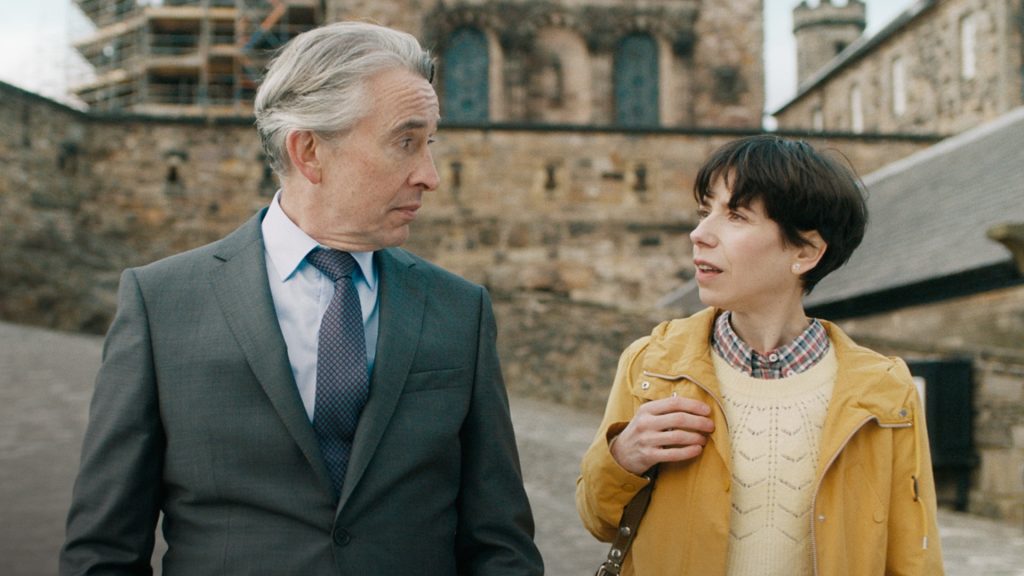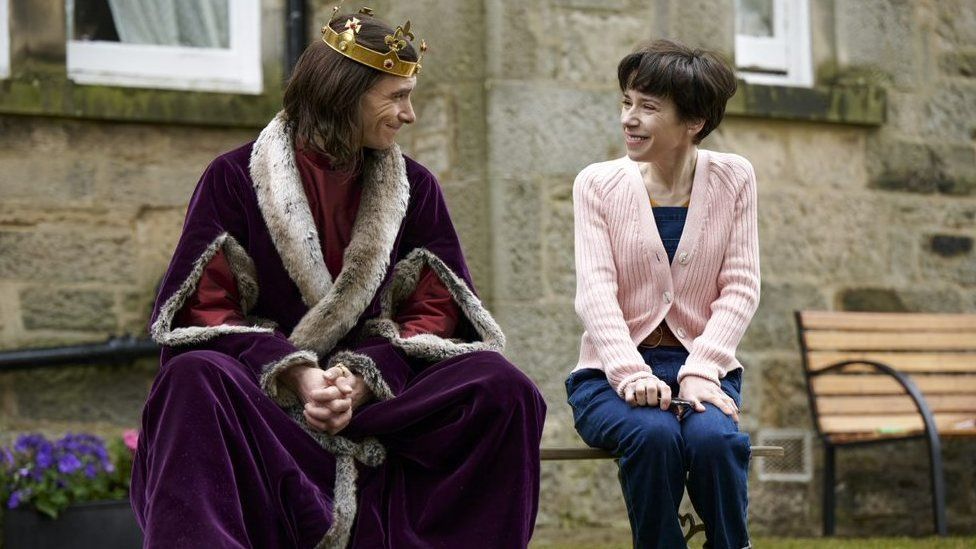Steve Coogan transforms the historic find of Richard III’s remains in a car park into The Lost King, a film that does a disservice to its real life protagonist
From a rain-filled hole in a drab Leicester car park in 2012 emerged not one but two remarkable stories. What a shame, then, that the filmmakers who were gifted these buried treasures chose to squander them on a futile quest for a third story which is less illuminating, less invigorating and less interesting.
Firstly, to that Leicester car park where a trench dug through the concrete (under a parking bay marked with an R) reveals a skeleton. The afflicted man has severe battle wounds to the scalp and – what’s this? – a cruel snake-like twist of the spine.
A hunch. A humpback. What did Shakespeare have him say in Richard III?
Cheated of feature by dissembling nature,
Deformed, unfinish’d, sent before my time
Into this breathing world, scarce half made up,
And that so lamely and unfashionable
That dogs bark at me as I halt by them.
Yes, it is Richard III. The Lost King of the title. Not a spoiler, because the discovery, 500 years after the king’s body disappeared in the Battle of Bosworth, made headline news around the world. And what a story! The tarnished king, the usurper, the victim of Shakespeare’s vile and timely calumny back to reshape his legacy as a true and enlightened leader.
But, wait, there’s a second story, more modern and magnificent. Who possessed the authority and intuition to see through an inauspicious slab of inner-city concrete and conjure up a king?
The real-life heroine of The Lost King
If Philippa Langley did not exist, the film-makers might have proposed her as a narrative device. We would have likely swallowed the conceit to get the job done. A middle-aged Edinburgh divorcee and underdog with two sons, an ex-husband and a detestable job in telesales.
Why her?
Was it because she was struck with an ailment (ME) prone to libel and found a kindred spirit in the despised and malformed king? This is one idea of many ideas that the film plays with but ultimately abandons, leaving their protagonist adrift.

Steve Coogan and Sally Hawkins as husband and wife in The Lost King
In real life Philippa must be a formidable and compelling woman, with an instinctive grasp on historic evidence capable of shattering years of lazy defeatism. She must be sufficiently passionate, obsessive and quick witted to take on the feet-on-desk professionals and dismantle an age-old consensus.
But The Lost King opts to present her (through the amiable Sally Hawkins) as a wet lettuce, a drippy romantic, entranced by a forlorn king (Harry Lloyd) who appears to her in apparitions offering dull blandishments.
This Philippa, the fictional one, is forever on the brink of tears or breakdown. She has “feelings” not facts, say the academics. Silly woman, they conclude.
Their real-life counterparts have decried their depiction. Quite rightly. Because the film-makers (director Stephen Frears, co-writers Steve Coogan and Jeff Pope) have created an on-point thesis of sexism, male pomposity and privileged complacency that doesn’t hold up even on its own terms.
- 5 simple tips to unlock your story’s true potential
- Master the art of storytelling with these 5 simple Cs
If this were a story of drippy, cake-baking amateur with a hunch (the joke is dealt with swiftly) and the establishment (in the person of University of Leicester attention seeker Richard Taylor – Lee Ingleby) were a brick wall of bureaucratic obstruction how come there was any progress at all?
How come they were quickly persuaded and were ultimately agreeable, even coughing up some funds for the dig? No doors were slammed in her face. She didn’t overcome insurmountable odds or slay any giants. Instead, she was diligent with the sources and won the argument.
Richard, and a second Richard (Buckley, played by Mark Addy – yes, there are three of them in the film) may have stolen a march in the PR stakes when the discovery was made but that is the more trivial theme.
This remarkable story – the search for the king in the car park and the outsider who found him – deserves a story for the ages, not a story of this age.
In brief: Lacking backbone

